 Discussion paper: „Good Governance for Sustainability: Recommendations and Examples for Sustainability-Integrated Corporate Governance in Banks”
Discussion paper: „Good Governance for Sustainability: Recommendations and Examples for Sustainability-Integrated Corporate Governance in Banks”
At the Sustainable Finance Gipfel Deutschland 2023, the Net Zero Banking Alliance Germany (NZBAG) presented the discussion paper “Good Governance for Sustainability: Recommendations and Examples for Sustainability-integrated Corporate Governance in Banks“.
Governance for the implementation of climate protection and sustainability in credit institutions is a multidimensional issue that encounters very different internal starting points – even if the regulation has a standardised effect on all credit institutions. Effective governance that integrates climate protection and sustainability into the strategy and overall management of credit institutions is required for an implementation that fully and efficiently realises the potential of transformation financing in the broader sense and at the same time reduces risks.
The focus of the discussion paper is on selected examples and recommendations with high practical relevance, which can provide orientation in a transitional period characterised by a high degree of uncertainty and correspond in terms of content with the background of the increasing regulatory scope.
The self-image of the nine member banks is not that of “perfection“ and “prescription making“, but rather to stimulate the active shaping of the bridging phase for an accelerated integration into the daily business in which they find themselves. The four company examples add a real economic perspective. They illustrate how the compatibility of sustainability and business works and thus also changes the cooperation with credit institutions.
The NZBAG thanks all those involved, without whom the production of this paper would not have been possible.
A guest commentary by Jasmina Klein and Egbert Schark of d-fine on MiNaBo: Sustainablility metrics of small and medium enterprises.
How the transformation of the economy can be supported by a neutral and fair data ecosystem
In the future, customers, business partners, authorities and credit institutions will regularly request various environmental and social indicators from small and medium-sized enterprises (SMEs). Serving the various requests requires a high amount of time and effort from the SMEs. In addition, SMEs face the challenge of having to securely transmit the often sensitive data to authorized parties at the right time. For the credit institutions, there is currently the problem of obtaining the data in a high quality. This is currently often not the case due to the large number of different questionnaires used by banks and commercial providers.
The solution to these problems is a standardized questionnaire, which is filled out centrally by the SMEs and which is transferred to the respective credit institutions, associations or authorities via a neutral data ecosystem. The necessary prerequisites for this will be provided by the MiNaBo (“Mittelstands-Nachhaltigkeits-Box”) application. In cooperation with credit institutions, a standardized sustainability questionnaire specifically for SMEs is being developed and continuously refined. The questionnaire consists of only a few questions that can be easily answered by the SMEs, e. g. their energy consumption. However, the questionnaire will contain all the relevant information that the financial institutions need to meet their requirements.

The collected data is stored in so-called data lockers at the data trustee EuroDaT. Via a simple web application, the SME determines who may view the stored data. EuroDaT ensures that there is no unauthorized access by third parties and, conversely, that the authorized credit institutions always receive the current data. EuroDaT as a neutral data service provider and company of the state of Hesse ensures that the data is used in accordance with the contract.
The questionnaire is completed by SMEs via a simple web interface in the open-source platform Dataland. Dataland is a public good initiative for an open data ecosystem focused on sustainability information across Europe.
By combining the services of EuroDaT and Dataland, the technical and time effort of the entire process, from the collection and updating of the data, to the storage and release of the data to the credit institutions or associations by the SME is minimized. The credit institutions benefit from the uniform database and fast access to existing data, e. g. for new customers, without having to send out their own questionnaires.
For the provision of the infrastructure by EuroDaT and Dataland, only a usage fee is charged in total. Neither EuroDaT nor Dataland earns anything from the data itself. The data remains the property of the SME. For the SMEs, the use of MiNaBo is free of charge. The service fee is paid by the users of the data, i. e. credit institutions or associations.
The Net Zero Banking Alliance Germany
Eight German banks have formed the Net Zero Banking Alliance Germany. The participating financial institutions are BNP Paribas, Commerzbank, Deutsche Bank, DKB, DZ Bank, ING, LBBW and Umweltbank that have pledged to steer their portfolios towards climate neutrality, in line with the Paris Agreement. This means that CO₂ emissions associated with investments or loans must be reduced to net zero by mid-century at the latest.
The Green and Sustainable Finance Cluster Germany supports the Net Zero Banking Alliance Germany in developing pre-competitive foundations, steering and governance approaches as well as advisory capacity for climate neutral loan portfolios and investments.
International cooperation with UNEP FI
NZBAG formalised the collaboration with UNEP FI’s NZBA in January this year. The global Net Zero Banking Alliance (NZBA) of UNEP FI and the German Net Zero Banking Alliance Germany (NZBAG) are independent initiatives. We want to expand the cooperation already started in the past and intensify the coordination of contents. Read more.

Both initiatives support banks in adapting their investment and loan portfolios to the 1.5 degree climate target (NZBAG: “definitely below 2 degrees, best case 1.5 degrees”) and achieving climate neutrality by 2045 (NZBAG) or 2050 (NZBA). The focus of the cooperation is on the harmonisation of international standards with regard to measuring and managing the climate impact of loan portfolios in line with the Paris climate targets.
The focus of the NZBAG’s work is on the development and testing of methods, minimum requirements and frameworks to adapt portfolios to the Paris climate goals. The basis for this is the Volunatry Climate Commitment of the German Financial Sector. By the end of 2022, the signatory banks want to set scientific climate targets for particularly climate-relevant sectors and report on progress towards meeting the targets from 2023 onwards. The primary objective of the collaboration in the NZBAG is to be close to the operational business and the practical application of the work results by the participating credit institutions.
NZBAG Update 2022
The eight member banks of the Net Zero Banking Alliance Germany have been working on the operational implementation of climate protection measures in and by banks for almost a year now. At the start of 2022, we take a look at the results to date and describe the goals for this year.
Discussion paper: Basic training on climate transformation
In the discussion paper “Employees fit for Paris: Upskilling in banks for a climate-neutral Germany by 204”, the NZBAG proposes a curriculum for a basic training for bank employees on climate transformation. The aim of the paper is to establish minimum standards for a training to educate bank employees on climate change and the roles and opportunities of banks in the transition to a low-carbon economy. It was developed in collaboration with experienced practitioners from eight NZBAG-participating banks.
The NZBAG aims that concrete training contents will be developed on the basis of this discussion paper. Final results of the NZBAG’s work are to be expected by the end of 2022. The NBZAG seeks feedback from interested stakeholders and welcomes exchanges on its positions.
Please find the full report here:
EU Taxonomy – Measure of positive contributions to climate transformation
The development of the EU taxonomy in the areas of climate protection and climate adaptation is largely complete. It is still open whether and to what extent fossil gas and nuclear energy should be defined as green in the EU taxonomy. In the discussion on these points, the principles of the EU taxonomy of technology neutrality and scientificity should be preserved. In the view of the Net Zero Banking Alliance Germany, these principles are important in order to obtain a uniform metric for positive contributions to climate transformation.
Discussion paper: Lending to a climate neutral Germany by 2045
In the discussion paper “Lending to a climate neutral Germany by 2045”, the NZBAG summarizes its position on loan portfolio steering in line with the Paris climate goals. The aim of the paper is to harmonise approaches for measuring the alignment of loan portfolios with Paris-compatible transition pathways in a methodologically agnostic manner.
The report includes NZBAG positions on:
- Strategic bank steering approach combining high-level climate goals and the banks’ operations;
- Introduction of the Climate Action Portfolio Indicator (CAPI) and the Climate Action Sector Indicator (CASI) as indicators to benchmark and compare climate ambitions of banks that use different alignment methodologies;
- Minimum requirements for climate scenarios to steer loan portfolios under the voluntary German climate commitment by the financial sector;
- Recommended scenarios to steer global and German loan portfolios under the voluntary climate commitment;
- Suggestion to use the EU Taxonomy as a measure for positive impact.
Based on this discussion paper, the NZBAG aims to develop an active and harmonized engagement approach for the German banking sector with its real economy clients. Final results of the NZBAG’s work are to be expected by the end of 2022.
The NBZAG seeks feedback from interested stakeholders and welcomes exchanges on its positions.
Please find the full report here.
Spring
2021
Joint Project Charter and definition of objectives
Kick-off of working groups
Mid
2021
Recommendations for portfolio management, start of sectoral work
Basics KPI implementation
Mid
2022
Recommendations on standards of sectoral engagement protocols and implementation approaches
Recommendations on governance and incentivization
End
2022
Conclusion of the sectoral work and recommendations for operationalization.
Final reporting and standards











